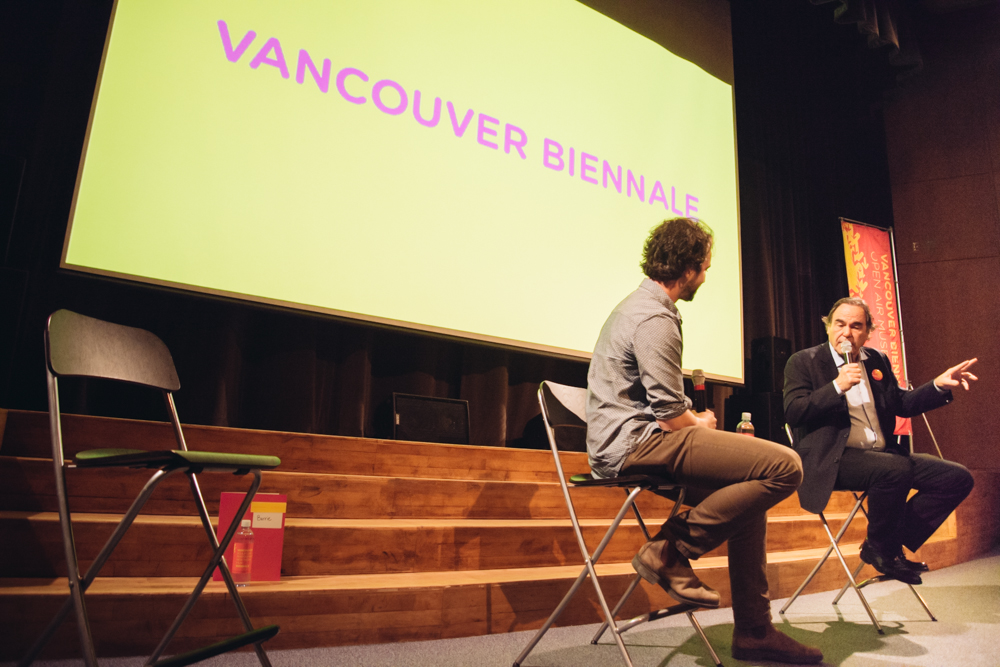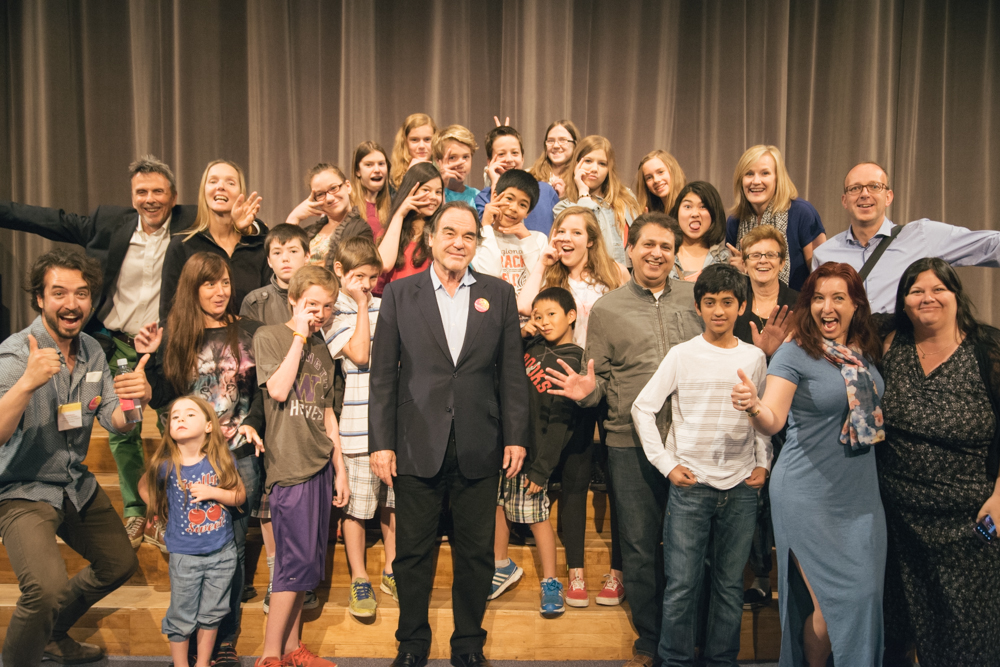Friday early afternoon, June 13, students of Moody Middle School, plus a few parents, teachers, and assorted high school students, attended a screening at Port Moody’s Inlet theatre. They watched film director Oliver Stone’s new television documentary, An Untold History of the United States. What happened next seemed a little surreal, but Mr. Stone himself arrived, entered the lobby and strolled into the theatre, took a seat on a stool at the front of the theatre, and introduced himself before taking 90 minutes’ worth of questions from the gathered.
At first, the questions were fairly generic, such as how long it took to make this documentary; “This was the hardest thing I have ever done,” he said. “It was five years, and the research, gathering material, was intense.” Why do this documentary? “When I look at America today, with entire states teaching creationism, with so much of history being left unexplored, in the shadows, and what amounts to tyranny with international policies, I believe it is important to at least try to look at things from a different point of view, to shine a bit of light in those shadowy areas, and see what we find.”
Mr. Stone is clearly at ease, and in no way treating this youthful audience any differently than he might any other. He explains his friendship with Jim Garrison, and how the conspiracy theories around the assassination of President John F. Kennedy are at least in part based on hard facts. “Jim was a great man, an American hero in my books. I wanted him to have a small role in my film, JFK, because his work in that case, and the report he filed, were the basis of my film, but also because it is virtually impossible to believe that [Lee Harvey] Oswald acted alone, based on some of Jim’s investigations.”
The students were rapt with attention, asking gradually tougher questions, more direct questions, such as “How would you define a terrorist?” Stone’s answer, not short and sweet, but protracted and still concise: “You can’t answer that easily, since you have to ask why a terrorist would take that path in the first place. Politics, economic disadvantage, lack of education, protest against another country’s influence in your own country or region, these are all factors. In the end, what happened at 9/11 was not an isolated, random act, but a calculated response to, in this case, America’s dealings in the Middle East. And remember, France, Germany, England, they’ve all dealt with terrorism over the past few decades. Terrorism, which is basically a violent response to a perceived wrong, has been with us for a long time.”
Later in the session, a student asked if Stone believed in the power of art to make change: “No, I honestly don’t. I do not believe a person goes to see one of my films, or any film, and comes away a better person, more willing to enact change in the community for the better. Once the film is over, it is back to the race, to the concerns about job, money. Having said that, I believe in art, certainly, in the sense that you must do what you believe is right, to do it from your heart, and art is sometimes a good indication that we are not giving up the fight against evil. Good and evil have been with us from the beginning, I suppose it is in human nature, from the time of Cain and Abel. So, for me, it is important to be active, to stand up for what you think is right. And education is vital to it all.”
It was a masterful performance that was not so much performance. After all, as it was an earnest exchange of questions, ideas, and provocative points of view. Stone himself is an advocate for considering points of view beyond one’s own, calling it “a compassionate view of the world, not restricted to only one view.” That is a great takeaway for a group of students who, as they filed out after having a group photo taken with the director, clearly understood they had just experienced something special, a once-in-a-lifetime in-person talk with Oliver Stone.
Photos: Scott Douglas for Vancouver Biennale.










